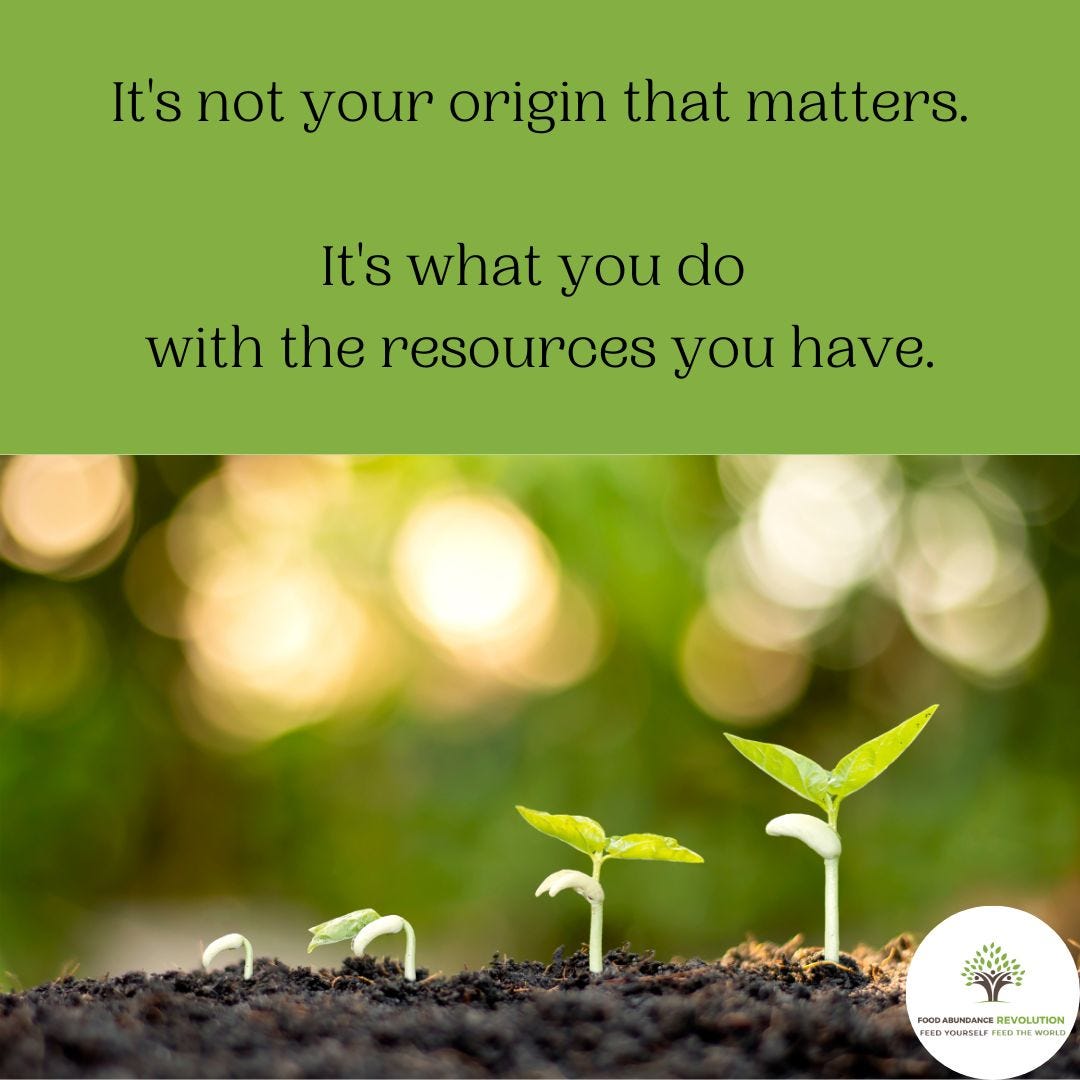5 Common Gardening Myths That Are Holding You Back
Don't let these bad boys hold you back from getting started
Sometimes it’s hard to remember, as you push your shopping cart through the supermarket aisles and load it up, that nearly everything you eat began as a seed. Think about it. All the bread and crackers, the flour, the rice, the cereals, the veggies and many of the fruits . . . once upon a time you could hold those in your hand as seeds. Just tiny seeds that someone had to plant.
Not that long ago, maybe 80 years back, most people had a backyard garden. Milk, if you drank it, was delivered to your door, often straight from the farm or local milk parlor. Even I can remember the milkman, and the glass jars on our doorstep. None of us are that far removed from our history of needing to grow some of our own food.
And yet today, the mere suggestion of starting a garden can feel overwhelming in an already packed and stressed-out life.
It doesn’t need to be this black and white.
Growing even a small bowl of your own food can be a rewarding experience. It can help to ground you. It can provide a sense of wonder.
Let’s look at 5 common gardening myths that are holding you back from starting a garden of your own.
Myth #1: You need a lot of skill
By definition, a skill is something you do very well. Few of us are born skilled. Instead we build our skills by repeating the necessary steps over and over until it becomes fluent and easy.
When you first start gardening, you may not have much skill, by which I mean you may not do it very well. But as with anything that you try, the more you practice, the better you get.
Gardening is perhaps one of the easiest skills to acquire. The first step in any garden is to take a seed, one seed, and plant it into the ground. That is a skill anyone can learn.
Over time you learn to improve where, and how, and when you plant that seed. You develop “skill”.
But getting started is crazy simple and done in seconds.
Every garden begins with one simple step:
You plant a seed.
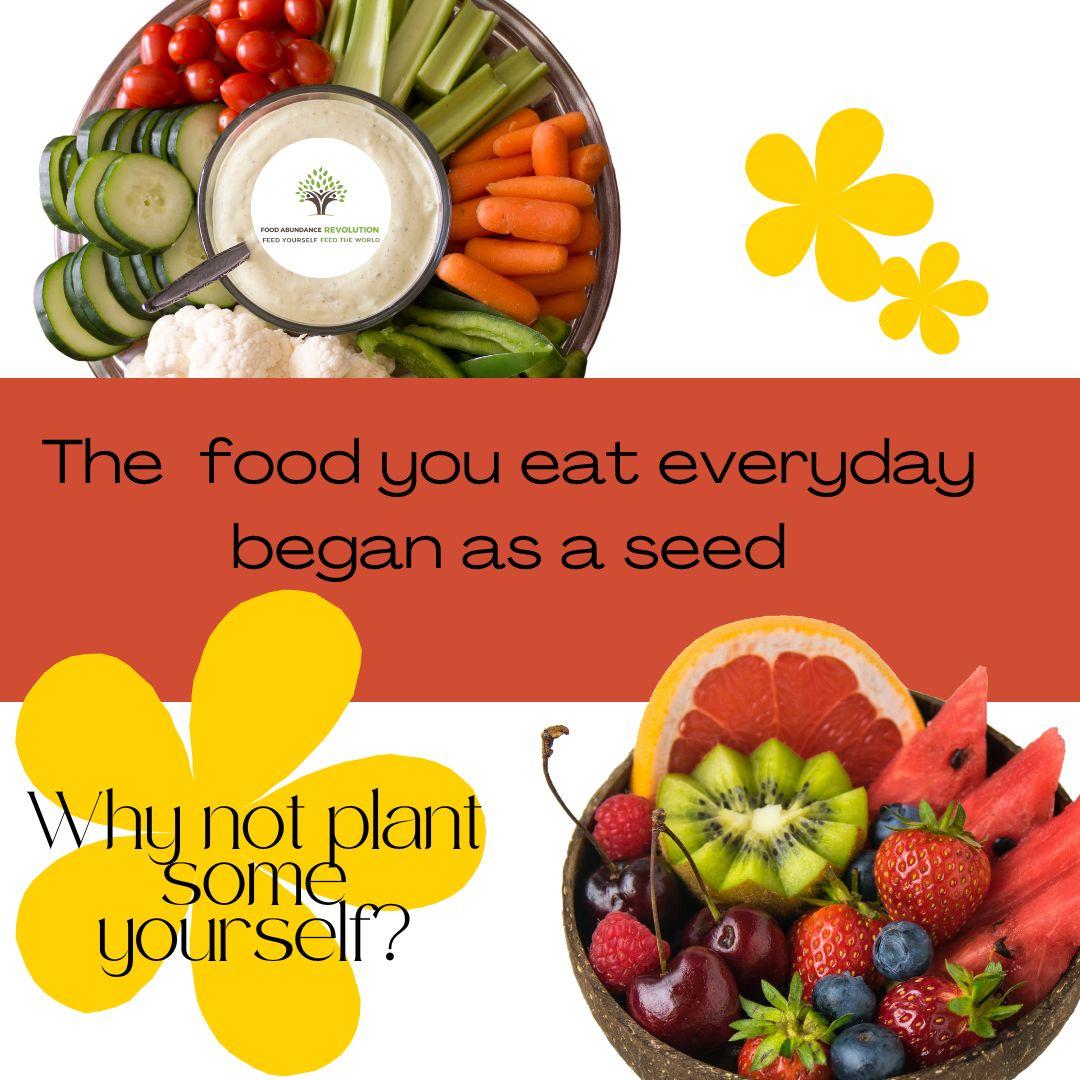
Myth #2: You need a lot of time
Contrary to popular belief, gardening does not need to take up all your spare time. With just minutes a day, or an hour a week, you can create a small garden that will provide you with healthy greens (learn more here).
Worried about watering? Don’t. With the advent of watering timers, and all kinds of self-watering containers, drip systems, and reservoir systems, you can design a set-it-and-forget system that can water your plants easily and efficiently.
Maybe it’s weeding that makes you cringe? No worries there either. With some simple mulching techniques using materials you have on hand, you can cut weeding woes down to near zero.
We all waste so much time these days, doom-scrolling the news, watching 15 versions of Wednesday’s dance, or flicking through channels. Just a few of those minutes could generating food, and the physical and mental benefits of gardening at the same time.
There are few more satisfying things to do with your time, than creating food for yourself.
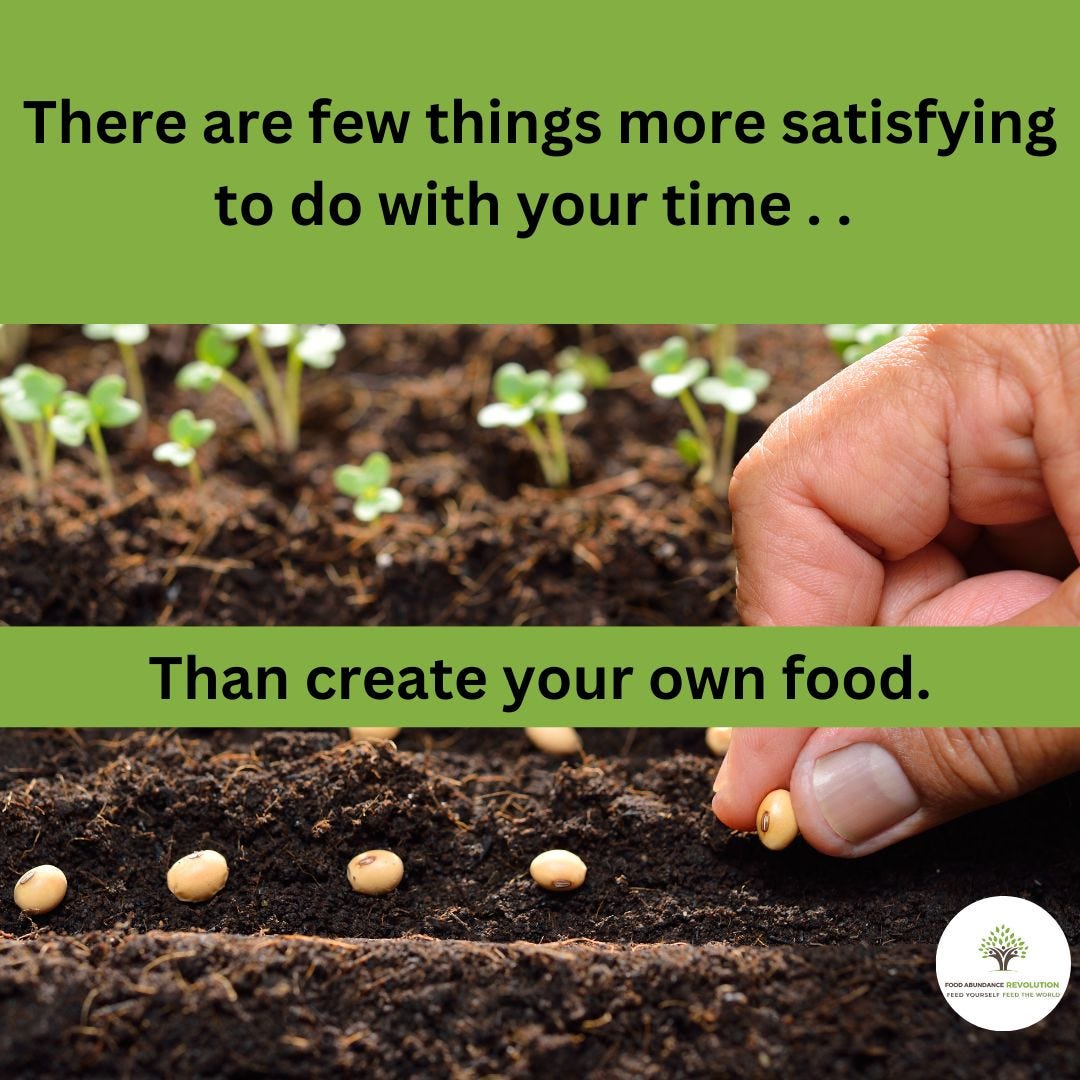
Myth #3: You need a lot of space
Incredible food gardens common all shapes and sizes.
You can grow sprouts and microgreens on your kitchen counter or window sill. You name it - if it can hold a scoop of dirt - it cn be used to grow some kind of food. Pots, containers, window boxes, pallets, crates, old wash tubs, and even recycled clothes can be used to hold enough soil to let one kind of veggie or another grow.
Gardening space is limited only by your imagination. Balconies, backyards, rooftops, and even vertically up walls . . . plants are resourceful and resilient beings that will use the resources you provide and turn them into nourishing food.
You don’t need much. You just need to start.
Myth #4: You need a lot of money
While it’s true, there’s no end to the amount of money you CAN spend in beautiful garden shops, growing your own food does not have to be expensive. In fact, the bigger your grocery store bills get, the more appealing growing your own becomes.
While buying your food often requires a lot of money, growing food requires, sunshine, soil, water, and of course seeds. Most communities have seed banks and lending libraries that can help you get some seeds to get started.
And if you are really facing challenges, you may be surprised to learn just how many common plants growing wild are not only edible, they are nutritious and delicious too. Give dandelions, chickweed, or plantain a try. (Just be sure to never harvest and eat a plant unless you are sure what it is and that it’s edible for humans - some plants are toxic and those ones will make you sick).
Most seed packages cost less than a Starbucks.
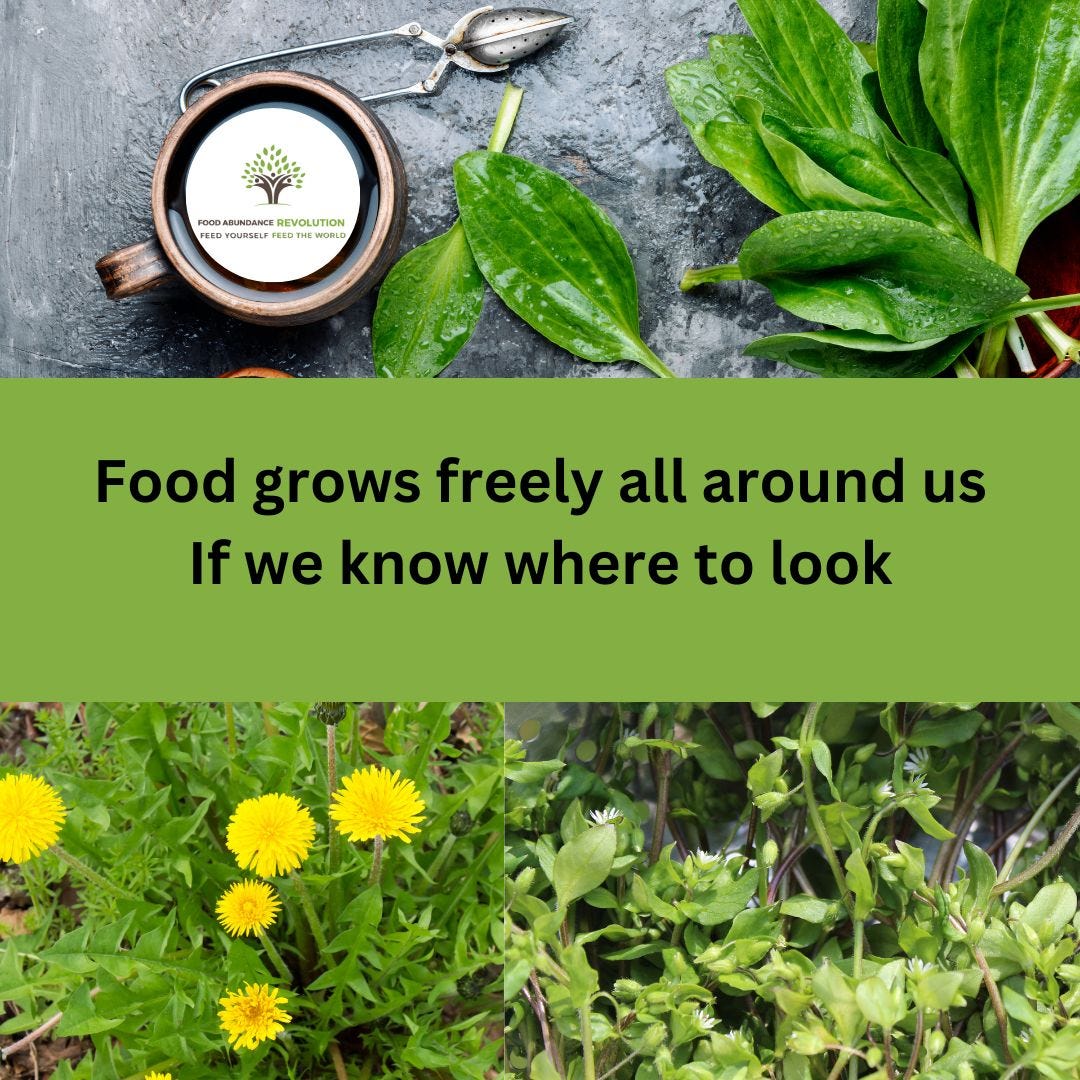
Myth #5: There’s no free lunch
We’ve all heard the saying: “There’s no free lunch!”
Turns out that’s actually wrong.
Once you start to garden, you can also start to save seeds. And what are seeds? Your next set of food plants of course.
Seed saving is a time honored tradition that dates back to the very beginning of human agriculture, some 12,000 years ago. Generations of humans have grown plants, saved the seeds, replanted them, and grown more food.
Multi-national corporations are working hard to make sure this tradition becomes extinct. They are working hard to make sure that no seeds are free, that no one gets a free lunch, and that farmers and communities are indebted and in service to their profits. Not a pretty future, is it?
The thing is, the only road block to your free lunch is you.
If you can grow a garden then you can learn how to save seeds. Don’t be fooled, or foolish. If you can plant lettuce (or spinach, or arugula, or anything really), then you can learn how to save seeds and eat for free. That’s a future we can live with.
Be the change. Plant a garden and save the seeds yourself.
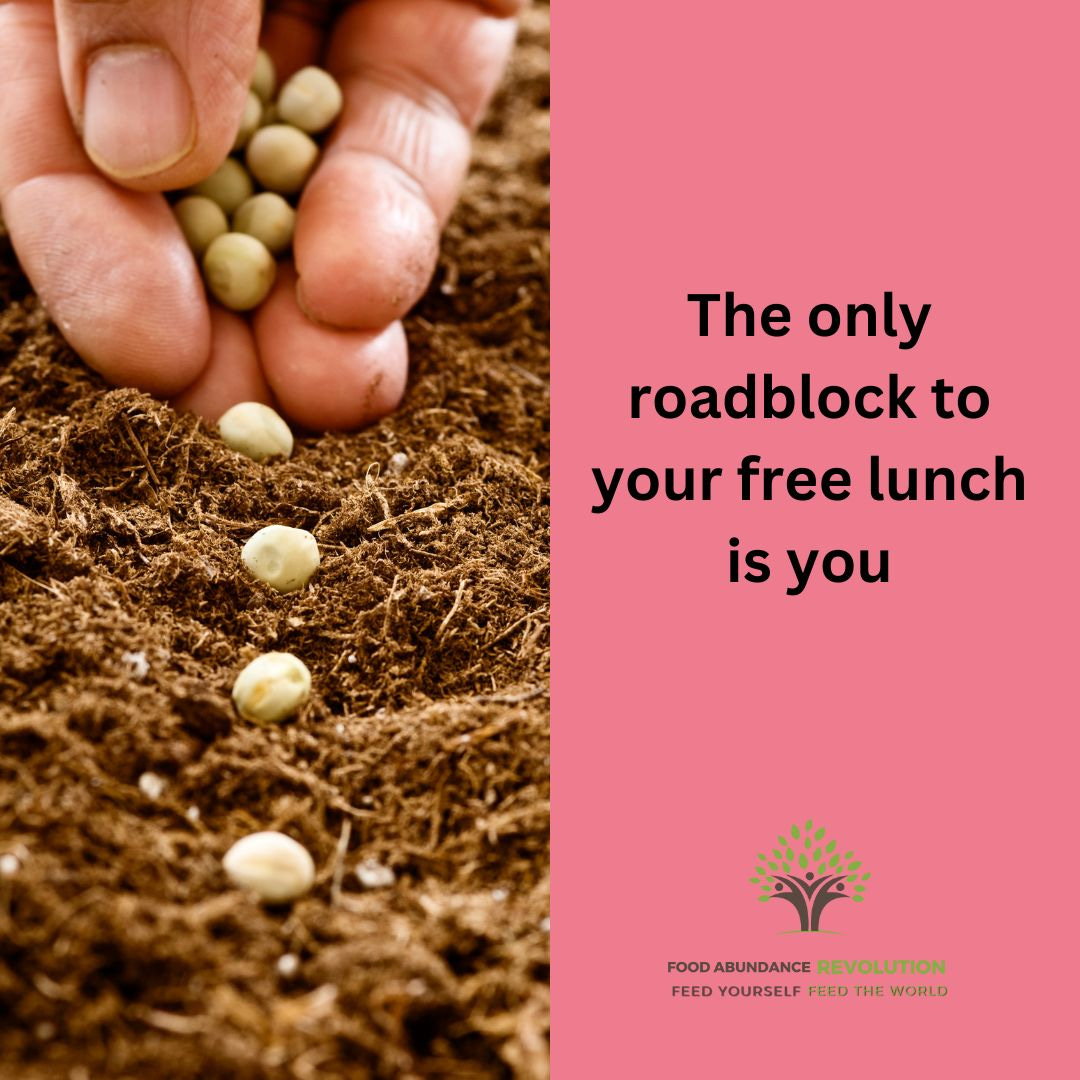
Don’t Get Fooled Again
The billionaires that control the global food supply have a vested interest in perpetuating the myths that growing food is hard, expensive, time consuming, and land intensive. They are actively making it harder and harder for you to save your own seeds and share those with your friends and neighbors.
But everyone needs to eat everyday, and there are 8 billion people in the world and counting. While a patch of greens or a pot of tomatoes may seem like an incredibly small contribution to your plate, every bit of food that is grown independent of the system is a step towards food sovereignty.
Don’t be fooled by these myths. Anyone can develop gardening skills. Anyone can learn to save seeds. And everyone deserves a free lunch now and then.
Ready to get started right now?
(1) Subscribe to The Naturalized Human. You’ll never miss a post. If you upgrade to a paid subscription, you’ll receive weekly posts that dive into the science behind our Mind-Body-Food Connection.
(2) Share The Naturalized Human with a friend. Help spread the word!
(3) Dive in deeper! Take the 30-day Get STARTED Garden mini-course from Food Abundance Revolution and learn how to create a continuous supply of greens quickly and easily. And receive the bonus Free Food Generator Module that will teach you how to turn your 30 day garden into a lifetime of free food. Then grow your heart out!





